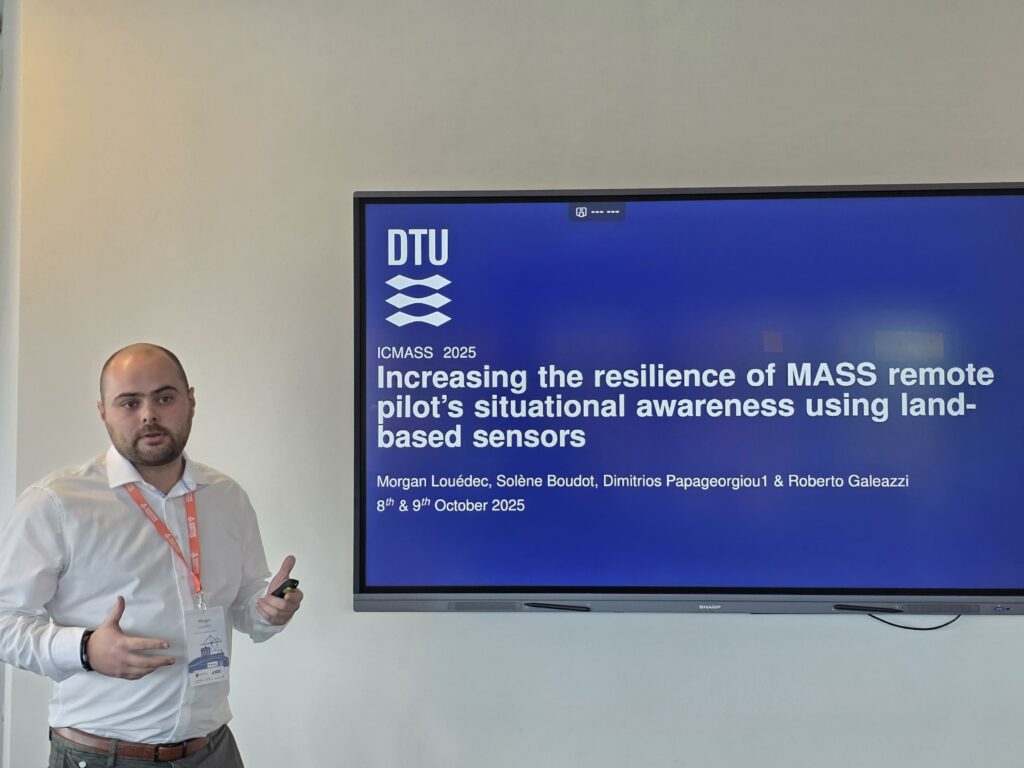This work was presented at the ICMASS 2025 conference in Hambourg on the 9th October 2025.

Abstract: Ensuring remote human oversight of Maritime Autonomous Surface Ships (MASS) during critical situations poses a key technological challenge: the human pilot must largely rely on sensor data transmitted from the ship to maintain situational awareness and assess risks such as collisions or groundings. However, this data can be degraded or falsified, jeopardizing decision-making and safety. To address this issue, we propose a method to enhance the resilience of situational awareness by cross-validating onboard sensor data with independent observations from land-based sensors. Specifically, we investigate the use of land-based stereo cameras to provide an auxiliary estimate of a ship’s trajectory, which is compared with the trajectory derived from the ship’s satellite compass. Interval analysis is employed to quantify and detect inconsistencies between the measured and estimated vessel positions. To evaluate the approach, synthetic degradations are introduced into the ship-based measurements, and the system’s ability to identify these anomalies is assessed. The results demonstrate the potential of shore-based sensing as a complementary validation layer for resilient remote supervision of MASS.
Related paper : https://doi.org/10.1088/1742-6596/3123/1/012065
Github code : https://github.com/MLouedec/ship_data_verification
This work is part of SLGREEN (Green Transition of the Blue Denmark through Digitalization, Decarbonization, and Safety). carried out under the ShippingLab platform. ShippingLab is supported by Innovation Fund Denmark, the Danish Maritime Fund, DS Norden, and the Lauritzen Foundation.